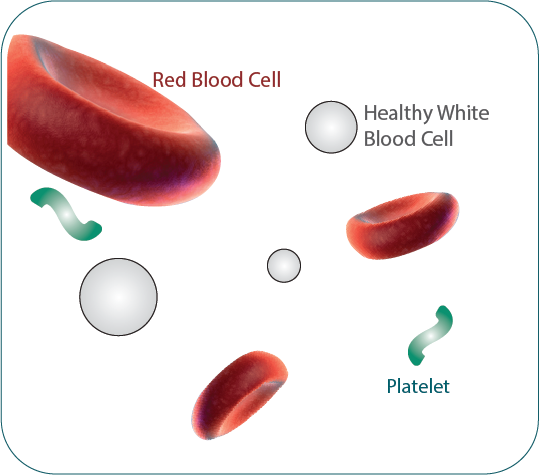AML
Acute myeloid leukemia (AML) is a type of blood cancer that starts in your bone marrow, but often spreads quickly to the blood and other organs like the lymph nodes, liver, spleen, brain, spinal cord, and testicles. It usually develops from non-lymphocyte white blood cells but can also arise from other blood-forming cells.


General symptoms of AML
Symptoms of AML are often general and nonspecific, and can include:
It’s important to remember that these symptoms may be the result of health-related conditions unrelated to AML. If you are experiencing any of these symptoms, especially for an extended period of time, it’s important to see a doctor to be properly treated.
In addition, the crowding out of healthy blood cells in diagnosed AML can lead to:
Anemia, Neutropenia, Thrombocytopenia.
Diagnosis information
healthcare provider will conduct a series of evaluations, commonly referred to as a “workup.” This may include:
treatment based on the results of your workup and your preferences as a patient.
